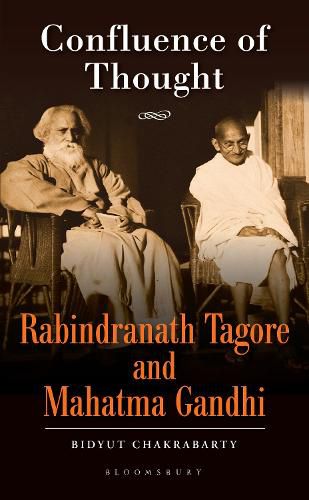Readings Newsletter
Become a Readings Member to make your shopping experience even easier.
Sign in or sign up for free!
You’re not far away from qualifying for FREE standard shipping within Australia
You’ve qualified for FREE standard shipping within Australia
The cart is loading…






Rabindranath Tagore and Mohandas Karamchand Gandhi constitute the key pillars of Indian nationalist thought. In this book Bidyut Chakrabarty demonstrates how Tagore and Gandhi drew on each other as they articulated their unique mode of thinking, which led to an innovative discourse. Tagore and Gandhi agreed on many ideas but also had serious differences on quite a few, for instance, on whether to support the British during the Boer War. Confluence of Thought brings out the compatibility as well as the differences in their thoughts by asserting that both of them, despite their differences in approach, are essentially informed and shaped by Western and indigenous discourses as well as by colonial rule. The chapters in the volume dwell on their views on nationalism, civilisation, religion, rural construction and religion. These ideas and arguments moulded the freedom struggle and shaped the future of a free India.
$9.00 standard shipping within Australia
FREE standard shipping within Australia for orders over $100.00
Express & International shipping calculated at checkout
Rabindranath Tagore and Mohandas Karamchand Gandhi constitute the key pillars of Indian nationalist thought. In this book Bidyut Chakrabarty demonstrates how Tagore and Gandhi drew on each other as they articulated their unique mode of thinking, which led to an innovative discourse. Tagore and Gandhi agreed on many ideas but also had serious differences on quite a few, for instance, on whether to support the British during the Boer War. Confluence of Thought brings out the compatibility as well as the differences in their thoughts by asserting that both of them, despite their differences in approach, are essentially informed and shaped by Western and indigenous discourses as well as by colonial rule. The chapters in the volume dwell on their views on nationalism, civilisation, religion, rural construction and religion. These ideas and arguments moulded the freedom struggle and shaped the future of a free India.